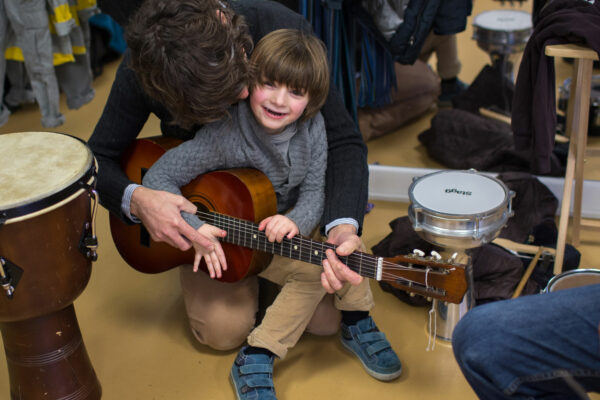Choosing leisure activities for children with SEND

Choosing leisure activities for children and young people with SEND
Like everyone else, disabled children and young people want to spend free time with friends doing things they enjoy. Although it may require a bit of thought and planning and quite possibly some additional support to make leisure activities work, it’s well worth the effort. It will improve the whole family’s quality of life.
The basics
Encourage your child to try new things. It’s hard to be sure what they’ll enjoy if they haven’t tried it.
Try to do some things as a family; it’s easy to concentrate too much on your special child and get the balance wrong. If your child’s needs make it hard to ‘fit in’ with ordinary family activities, joining up with other families who have children with similar needs to yours can help you feel more relaxed and confident about trying new things.
Be open to mainstream activities and ‘special’ ones; sometimes children and young people want to be like their non-disabled peers and distance themselves as much as possible from their differences or disabilities. At other times the same children may only feel confident alongside disabled peers.
Don’t overdo it. Not every moment of your child’s day has to be filled with something educational or therapeutic. Children need time and space to be themselves.
Call ahead before days out. If you’re away from home, it’s worth ringing disability organisations in the area you’re visiting to find out what’s going on. Contact big attractions before you visit – many offer concessions and special passes, so you avoid the queues.
Support them to hang out with their mates at the shops, cafes, the park, the beach, etc. They may need extra support to make this possible but it’s worth the effort. You could find out about Direct Payments to help your teen organise their own support. Or you could look out for local buddy schemes – see the ‘Ask about’ section below.
How to choose leisure activities
Ask your child what they want to do and avoid influencing their choices or encouraging them to do what adults think is best.
Ask other parents about safe places to go and fun things to do, especially when they have children with similar needs to yours.
Don’t dismiss a club because parents are required to stay. Some of the best activities may be organised by other parents and volunteers who may not be able to take responsibility for supervising children going to the loo, for example. And these are often the places to meet other parents and exchange tips.
Ask questions but stick to the important ones. You are likely to have many ‘what happens if’ and ‘how will you’ questions when visiting a new leisure activity. What will you do if my child cries? How will you respond if my child has a seizure? Of course you are itching to be reassured by the answers. But if you ask all your questions at the same time, it may knock a club’s confidence about including your child. So just ask the really important ones.
Sit and see how an activity session or club runs. Written policies are fine, but what happens in practice is more important. Upsets that go unnoticed and grown-ups who seem more interested in their own news than the children’s should ring alarm bells.
How to help make sure their activities go well
Have five or so ‘helpful things about your child’ to hand that you can share with the leisure provider. You can write your list with your child, encouraging them to think about what’s important to them. You might also make another list of more personal or medical information that’s shared only on a ‘need to know’ basis.
Encourage your child to think about how they would like to be introduced and whether they’d like to do this themselves.
If you observe anything that worries you, discuss it. You shouldn’t necessarily be worried by difficult or challenging situations; how they are managed is what matters.
Expect it to take some time for your child to settle and others to get to know them; accept there are bound to be hiccups along the way. Making friends and learning new skills takes practice and even old friends fall out sometimes. If things don’t get off to a good start or hit a bad patch, take a deep breath and stay encouraging.
Further help
- Leisure discount cards. The Compass Card (Brighton & Hove) and the i-go card (East Sussex) are free leisure discount cards for 0 to 25 year olds with additional needs who live or go to school in Brighton & Hove or East Sussex. There are tons of offers and suggestions for inclusive play and leisure opportunities. Families need to complete a form about their child’s and their family’s needs to register. The eligibility criteria for each card is slightly different, so visit the Compass Card page, or the i-go website to find out more and apply.
- Online directories – your local council will publish details of after school activities, holiday play schemes and clubs. You may find this on the ‘Local Offer’ for your region, which is an online SEND information hub (See Brighton & Hove Local Offer or East Sussex Local Offer), or in other community web resources such as Family Help Online in Brighton or East Sussex Community Information (ESCIS) or 1space directory.
Brighton & Hove
- Cherish – youth and holiday clubs and activities for young people aged 16-25 with moderate or severe learning disabilities in Brighton & Hove. Call 01273 295 171.
East Sussex
- Sibling Service – provides short breaks and activity days for children aged 6 to 17 who have a brother or sister with a disability. Contact Sibs through the East Sussex SEND Info Hub (Local Offer)
- Aspens offers services for children and young people with a range of disabilities, including autistic children and those with complex needs aged 8-25 (18-25 with EHCP) across East Sussex. They run regular groups for different ages and holiday activities. Visit Aspens website page on children’s services in East Sussex for details.
- Parent support groups – there are lots of local groups where parents and children can get together with other families of children with similar needs. Amaze’s Face 2 Face project runs lots of different groups for parent carers across Brighton & Hove and East Sussex. Some are for any child with a disability, some are for families with children with specific conditions. Visit our Parent groups & befriending page for details.
- Young carers activities and groups – The Carers’ Centre Young Carers Project in Brighton & Hove runs activities for children who have a sibling or parent who is ill or disabled in the city. In East Sussex, the Young Carers Service (by Care for the Carers) is for all young carers, aged 5 to 17, living, attending school or caring for someone in East Sussex. They run holiday activities, online and in person clubs.
- Family Fund – you may be able to get help to pay for activities and short breaks from the Family Fund, a national charity that provides grants for families with disabled children. Call 01904 550055 or visit Family Fund website
- Short breaks – children with more significant disabilities may be eligible for short breaks after an assessment by social care. If so, you may be able to choose to get this help as Direct Payments and spend it on activities that your child enjoys. Families should speak to their child’s casework officer, assessment and planning officer or social worker if they have one. They can make a referral for you. Alternatively, Brighton & Hove families can contact the Specialist Community Disability Service on 01273 295550 or adult social care via the Access Point (01273 295555). East Sussex families should contact the Single Point of Advice (SPOA) on 01273 335 906 or email: 0–[email protected].



